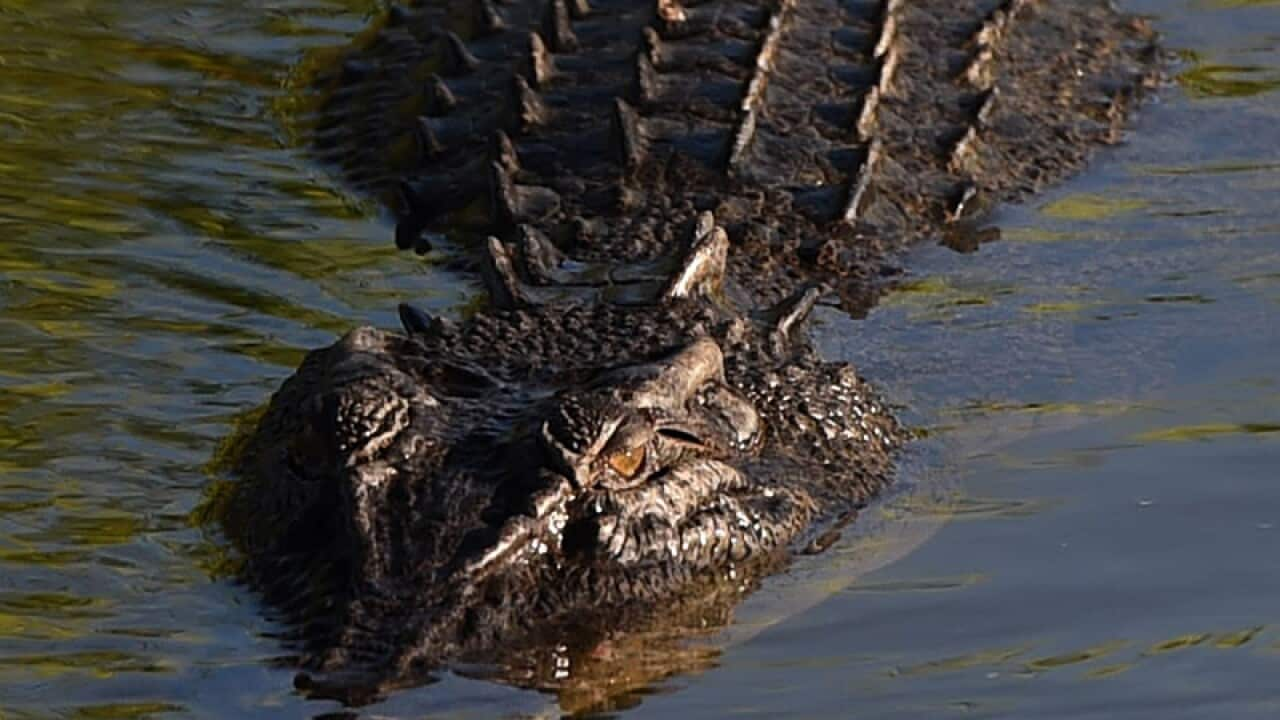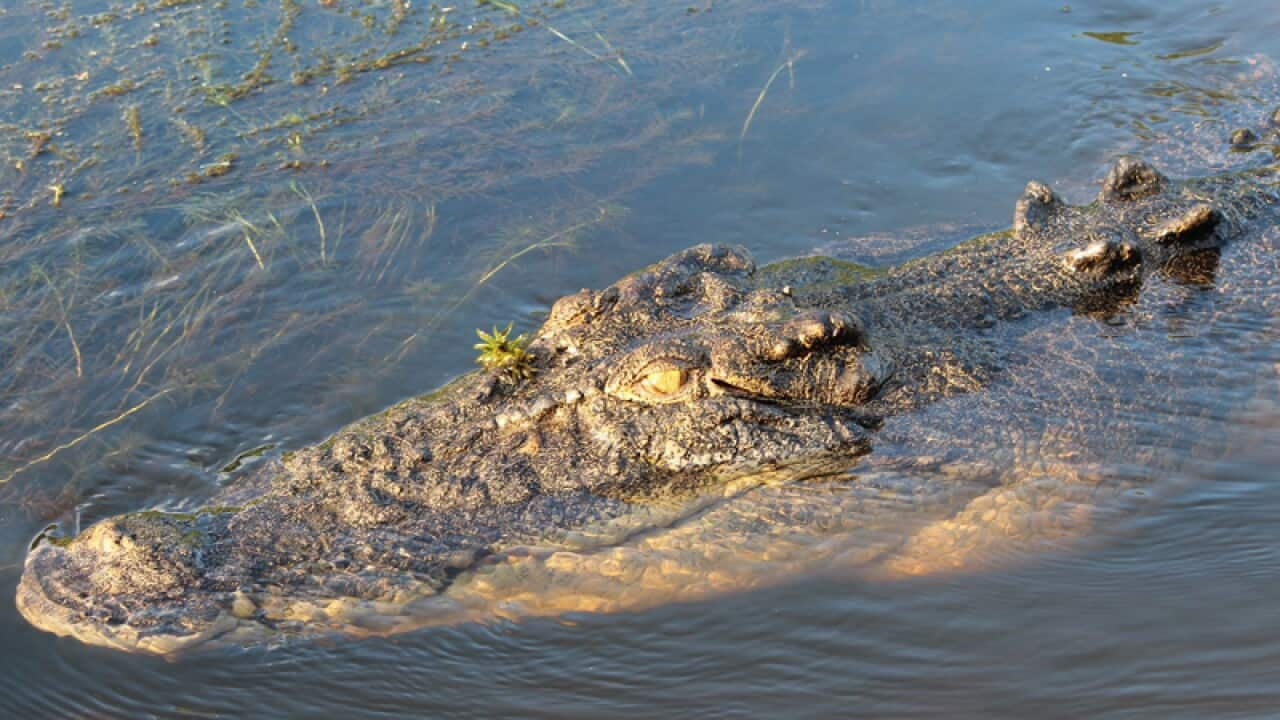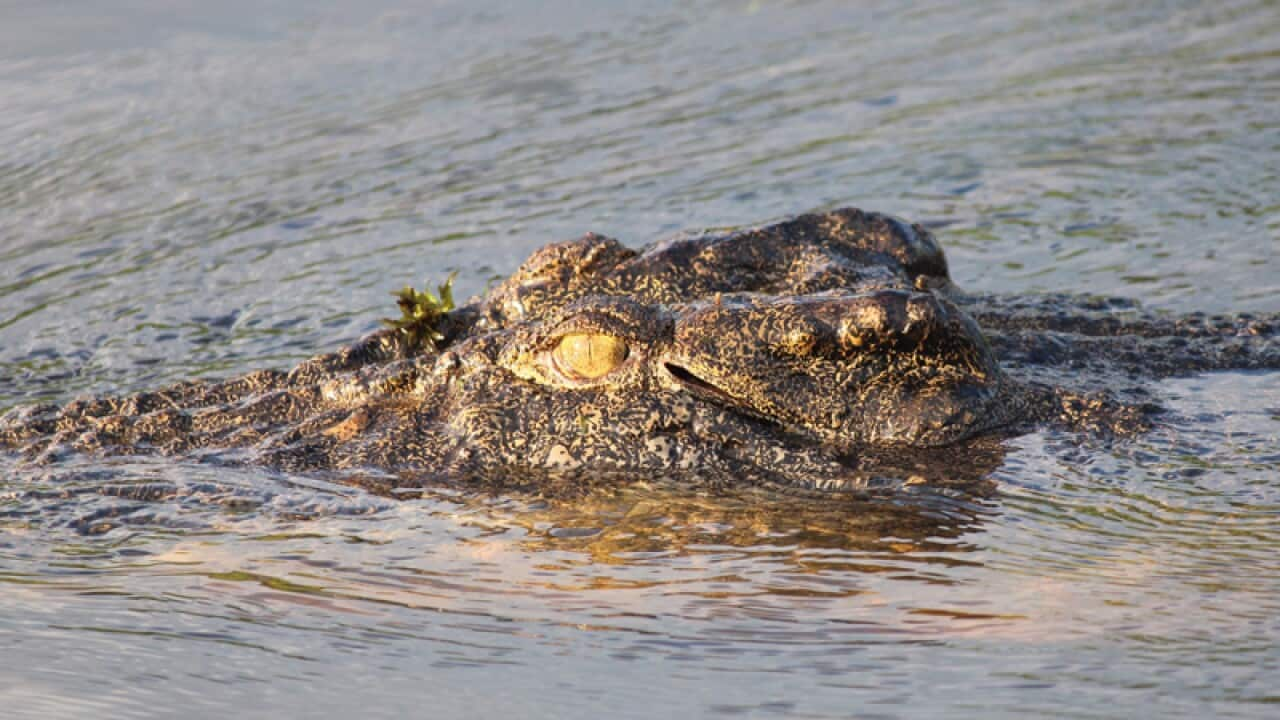Northern Territory Chief Minister Michael Gunner has weighed into the controversial croc safari debate, stating his Labor government would endorse regulated trophy hunting in collaboration with Indigenous groups.
"There are Traditional Owners who are out there, who would like to work their country and they see this as an opportunity with tourists," he told reporters on Wednesday.
There's been a 66 per cent spike in croc captures in the past year, after a bumper wet season connected major river systems and allowed the deadly animals to move around more freely.
Despite Bob Katter's recent campaings to promote croc safaris in Queensland, Mr Gunner said the idea has never gained any traction due to longstanding staunch federal government opposition.
NT Senator Nigel Scullion believes croc safaris could bring much-needed money into impoverished remote Aboriginal communities and create jobs, but has had no luck in persuading his federal colleagues in the past.
Advocates argue safari hunting would protect local livestock, fund conservation and boost the recreational fishing, Aboriginal art and tourism sectors, but some scientific commentators say selling hunting licences to rich shooters will do little to mitigate safety risks for the general public.
Mr Gunner called on Federal Environment Minister, Josh Frydenberg, to visit the Territory in order to better understand the issue. He says his government is finalising a new croc management plan.
Croc numbers have exploded up to 100,000 across Australia's tropical north since they became protected in 1971, after being hunted to near extinction.

NT man in stable condition after croc attack
Because salties can live up to 70 years and grow throughout their lives, the proportion of large crocs is also rising.
Although experts believe the population has now plateaued, rangers say interactions between humans and the apex predators are becoming more frequent.
Almost 300,000 international visitors flocked to the Territory in the year to March, with many hoping to catch a glimpse of the prehistoric reptile that helped form part of Australia's cultural identity.
NT Chief Ranger Tom Nichols says his team have their work cut out for them removing crocs from water holes as the dry season gets into full swing and tourist numbers swell.
"The amount of people and kids that go swimming and fishing, they're coming in contact with crocodiles and this can be quite dangerous," he said.
OTHER RECENT STORIES ON CROCS

Croc shooed away with thong prompts safety warning
Many popular spots in the Kakadu, Litchfield and Nitmiluk National parks are taking longer than normal to open for swimming.
Mr Nichols expects croc movement in the Top End to slow down in the coming colder months, but warned Territorians and visitors alike not to risk their lives.
"I was born here and there's certainly places I used to swim when I was a kid that I wouldn't go to now," he said.
AAP










